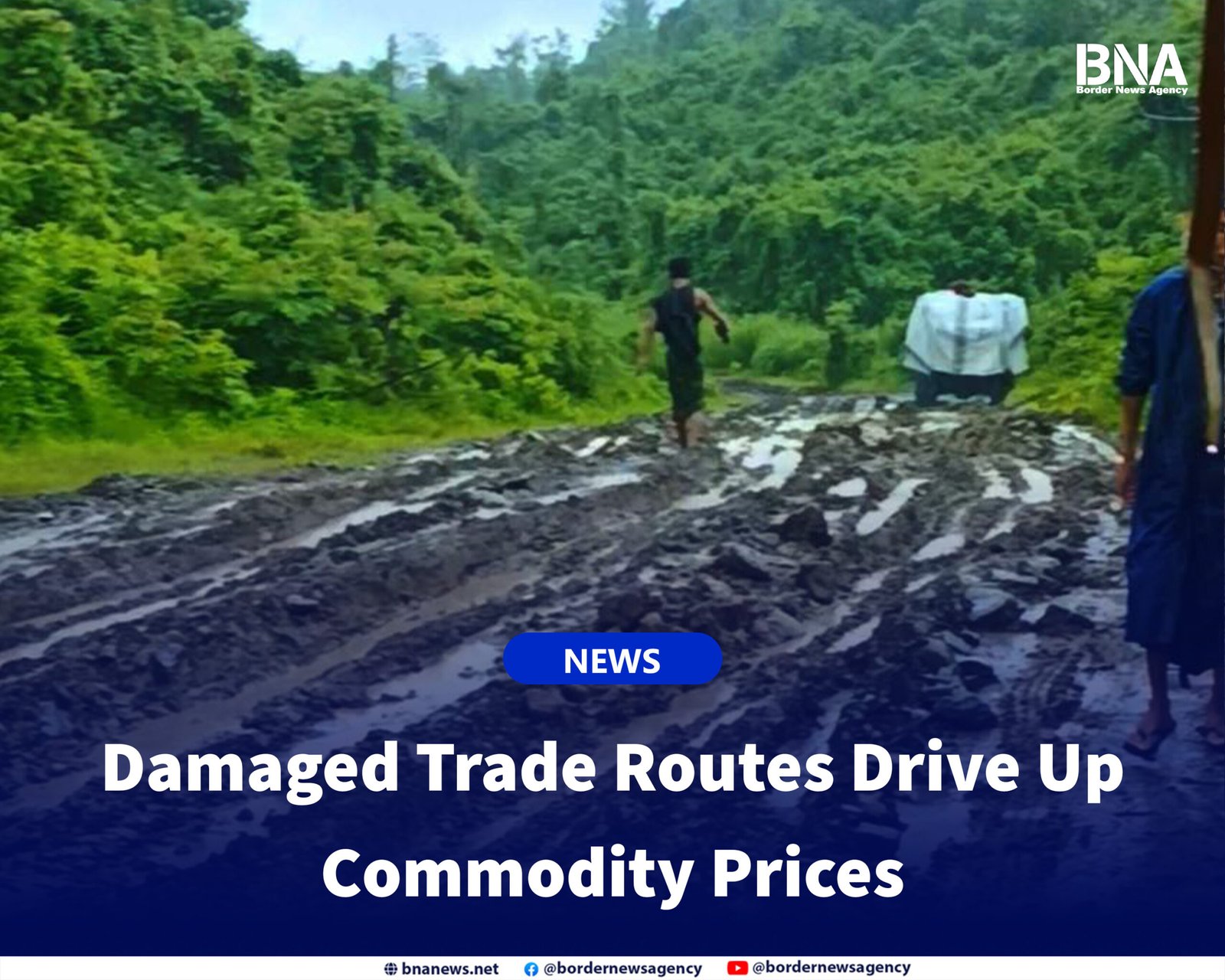Border News Agency
Kyauktaw, July 5.
Locals say that commodity prices are rising in the Arakan region due to damaged roads used for transporting goods.
Merchants explain that trucks are getting stuck or delayed because of the poor road conditions, leading to increased transportation costs and, in turn, higher prices for goods.
“Commodity prices are going up. They’ve nearly doubled compared to before. Goods aren’t coming in as usual because the transport routes have collapsed in some areas, it’s impossible to travel. To get goods into Rakhine now, we have to rent smaller, dedicated vehicles, but the rental fees are extremely high, which makes things even harder. That’s why prices are rising here in Rakhine,” said a merchant from Kyauktaw Township in an interview with Border News Agency.
Since the beginning of the all-out war in Arakan, the Myanmar junta has blocked both land and water routes, effectively cutting off all trade flows into the region.
As a result, traders have been relying on informal routes and mutual understanding with neighboring countries and regions to transport goods.
However, merchants say that those alternative trade routes have become even more difficult due to heavy rainfall, which has caused landslides and road damage, delayed transport and making it harder to move goods.
As a result, prices of goods have continued to rise, and ordinary people including displaced communities are facing increasing hardship in meeting their basic needs, according to local residents.
“This morning, I went out to buy some household items. Prices have gone up almost double compared to before. When I asked about it, shopkeepers said the supply trucks are stuck and goods are running out, which is why the prices have risen. Before, I could afford two bottles of cooking oil. Now I can only buy one. Things are so difficult that it’s beyond words,” said a woman from Pyitawthar Ward in Kyauktaw Township.
Merchants say that due to the damaged roads, some goods are also getting spoiled during transport, while others are becoming scarce or even unavailable to order.
The Arakan Army currently controls 15 townships, including the Paletwa region, and is implementing administrative mechanisms as part of its effort to establish the Arakan People’s Revolutionary Government.
People say they want the Arakan government to repair the trade routes within its controlled territories.






